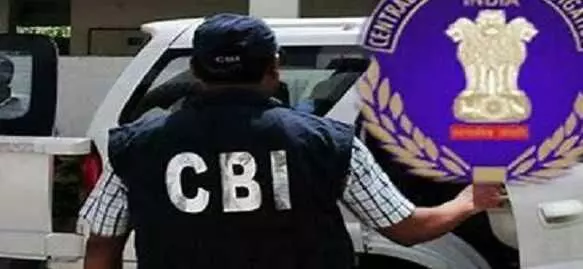
Kolkata doctor rape-murder: CBI to confer with AIIMS on DNA, forensic evidence
text_fieldsNew Delhi: According to sources on Tuesday, the CBI will confer with specialists from the All India Institute of Medical Sciences (AIIMS) regarding the DNA and additional forensic reports concerning the rape and murder of a medical doctor at RG Kar Medical College in Kolkata.
The CBI added that it will forward the reports to AIIMS-Delhi for their view in order to create a strong case.
The reports will help the agency ascertain if Sanjay Roy, the lone person arrested in the case, acted on his own or others were involved in the crime, they said.
The CBI has also filed an application before a Kolkata court seeking permission for a polygraph test of Kolkata Police ASI Anup Dutta.
The agency is investigating if Dutta knew Roy and extended any help to the accused after the crime, the officials said.
The CBI had already questioned Dutta in connection with the case, they said.
So far the agency is working on the leads that Roy was the only accused in the crime, but involvement of others will only be ruled out after receiving the opinion of AIIMS experts, the officials said.
The CBI completed polygraph tests on former principal of the medical college Sandip Ghosh on Tuesday, the third day of subjecting him to a series of Deception Detection Tests (DDT), they said.
He underwent a layered voice test on Saturday which was followed by a polygraph test on Monday. The test on Monday could not be completed and resumed on Tuesday.
Layered voice analysis is a new deception detection test (DDT) in the forensic arsenal used to detect the speaker's reaction to a lie. It does not identify a lie.
The technology identified stress, cognitive processes, and emotional cues in different properties of the voice.
A polygraph test, also a DDT, can help in assessing inaccuracies in the statements of suspects and witnesses. By monitoring their psychological responses - heart rate, breathing patterns, sweating and blood pressure - investigators can determine if there are discrepancies in their responses.
However, these are not admissible evidence during the trial and can only be used to get further leads in a case.
The alleged rape and killing of the junior doctor in a seminar hall of the hospital has sparked widespread protests.
The medic's body with severe injury marks was found inside the seminar hall of the hospital's chest department on the morning of August 9 by a doctor who was on the round.
Kolkata Police arrested Roy on August 10 based on CCTV footage in which he was seen entering the seminar hall at 4.03 AM on August 9 when the crime was allegedly committed.
Based on CCTV footage, Roy was put through extensive interrogation and the police had also noticed "recent injuries" on his left cheek, abrasion in the left hand between his left and ring finger, and abrasion over the back of his left thigh among others showing signs of struggle.
His biological samples like urethral swab and smear, semen, hair, nail clippings and nail scraping were collected during the medico-legal examination, they said.
On August 13, the Calcutta High Court ordered the transfer of the probe from the Kolkata Police to the CBI, which started its investigation on August 14.
The CBI took over all the forensic evidence from Kolkata Police and also subjected Roy, Ghosh, four doctors who were on duty with the victim, and a civic volunteer to polygraph tests to get further leads about the crime.
The initial reports from CFSL are being analysed and corroborated with evidence to get further direction to the probe, the officials said.
With PTI inputs























